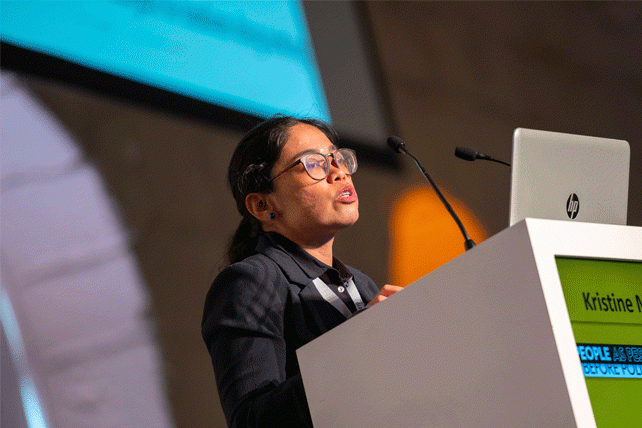©Steve Forrest/HRI/Workers' Photos
Rage against the dying of the light: In search of justice in the Philippines
Principles of justice and human rights in the Philippines have been deeply eroded by President Rodrigo Duterte’s so-called drug war, but a group of human rights defenders are intent on changing that.
Speaking at the Harm Reduction International Conference (HR19) in Porto, Filipina human rights activist Kristine Montenegro Mendoza warned that her country’s “war on drugs has unravelled into anything but a war on illegal substances”. Instead, she said, it has become a vessel for the authoritarian Duterte to usurp powers from the country’s fragile political and judicial institutions, and has provided a cover for state actors to commit extrajudicial killings with impunity.
“[Duterte has created a] long-term, institutionalised, and well-funded pseudo-war which centralised all governmental powers into one strongman who – through effective social control – was able to damage our democratic principles, such as checks and balances, accountability and transparency, the civilian nature of our police force, the independence of the judiciary, the rule of law, and respect for human rights”, she decried.
Fortunately for the people bearing the brunt of the drug war, Mendoza and her colleagues refused to sit back as Filipinos’ hard-won rights and principles were being stripped away.
Mendoza is a founding member of StreetLawPH, an organisation of lawyers and advocates working to improve access to justice and human rights. The group was founded in the wake of Duterte’s brutal crackdown on people allegedly involved with drugs, which has led to – on average – 33 people being killed in the country every day since Duterte’s sweeping electoral victory in June 2016.
As of February 2019, at least 5,176 people have been killed during police anti-narcotic operations, while at least 29,000 homicide cases are – according to police – “under investigation”. Victims’ families have little faith in their murders being solved as police officers are widely suspected to be involved in many of these brutal crimes.
While StreetLawPH does not have the power to change the law, it can support some of the people most at-risk of being victimised by the state. The organisation conducts legal literacy training so that people who use drugs (PWUD) know their rights and can act as paralegals. StreetLawPH is also beginning to provide direct legal services for strategic litigation that Mendoza hopes will allow for effective advocacy for drug policy reform at the legislative level.
Topics
Regions
Related Profiles
- Talking Drugs
